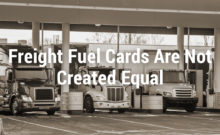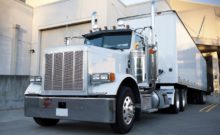Back in January, California’s AB5 bill received a ruling stating that owner-operators could not be classified as employees of the fleets they were driving for as independent truckers. This was a win-win for trucking companies and owner-operators alike. However, with the recent COVID-19 pandemic, other states are once again making a big push to change driver classification.
Driver Classification and Owner-Operators
The classification of owner-operators has benefited both drivers and fleet owners for decades. Owner-operators have flexible schedules and can easily fill in gaps to keep supply chains moving. Fleet owners rely on owner-operators to act as “free agents” because – even though their rates may be higher than full-time drivers, they do not get any benefits and fleets don’t have to pay extra taxes for taking on extra employees, especially for one-off hauls. If the driver classification for owner-operators is changed, both owner-operators and fleet owners will take the brunt of the financial burden, and the result could disrupt supply chains. Potentially, under reclassification, owner-operators would have to function like other fleet drivers, and the ability to fill in for unusual shipments or when the pressure for capacity is too high would be off the table.
Legislation Vs. Reality
Legislation for bills such as AB5 is coming to the forefront as a way to reduce unemployment and hold employers accountable for how they treat freelancers and independent contractors. While this seemed like “good intention” legislation, the result created a big divide among free agents in all industries, but especially in trucking. With the court ruling on AB5, owner-operators no longer had to worry about driver classification. But in the face of the COVID-19 outbreak, lawmakers are looking for ways to protect workers and businesses alike. The drawback is that similar bills to AB5 are popping up in New York, Ohio, New Jersey, and elsewhere which are similarly aimed a changing the driver classification for owner-operators. While there is no telling if the current situation will impact whether or not these bills pass, we can hope that the ruling on California’s AB5 bill will set precedent and allow fleets and independent drivers to maintain their mutually beneficial relationships.







